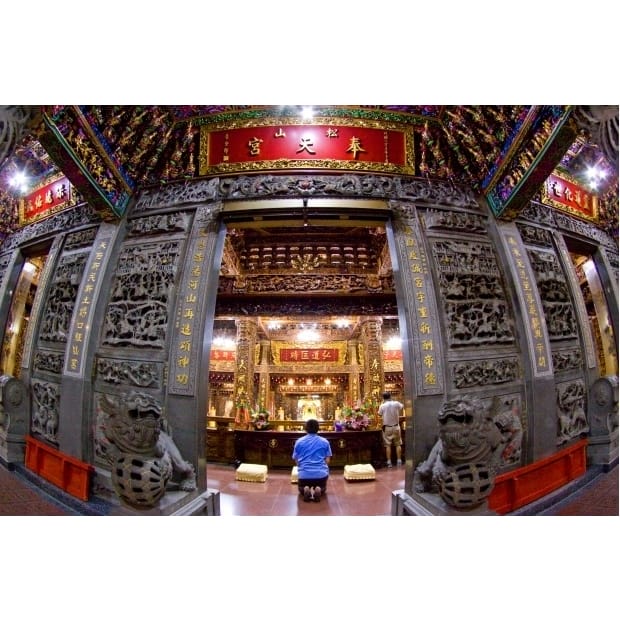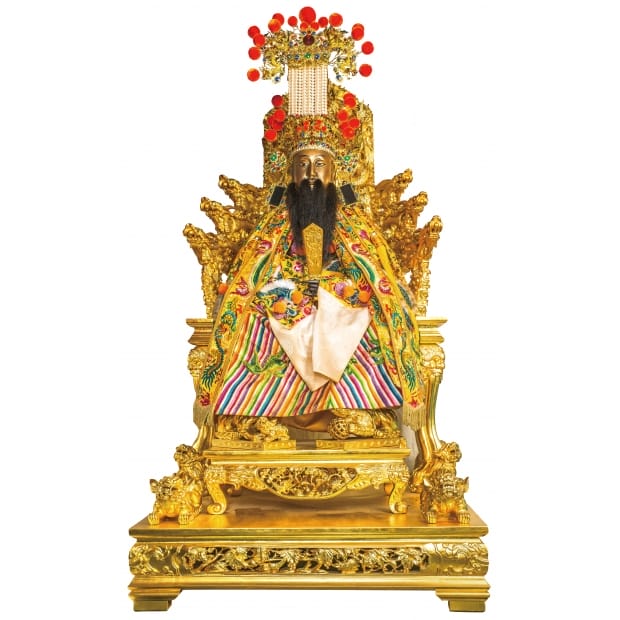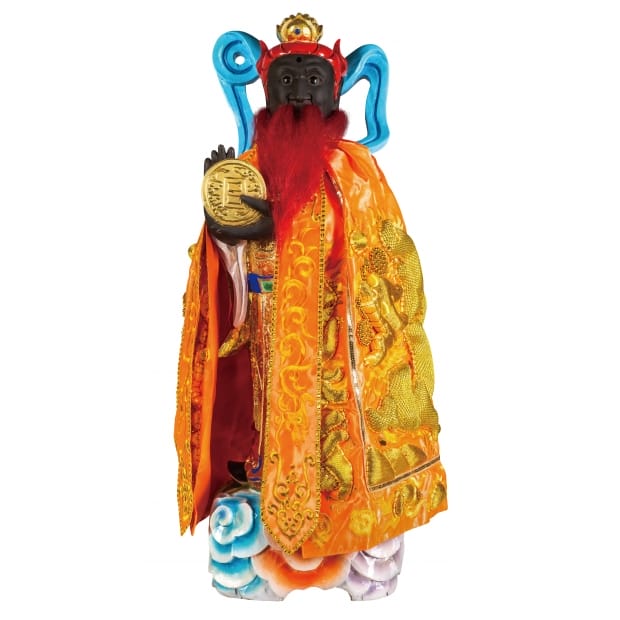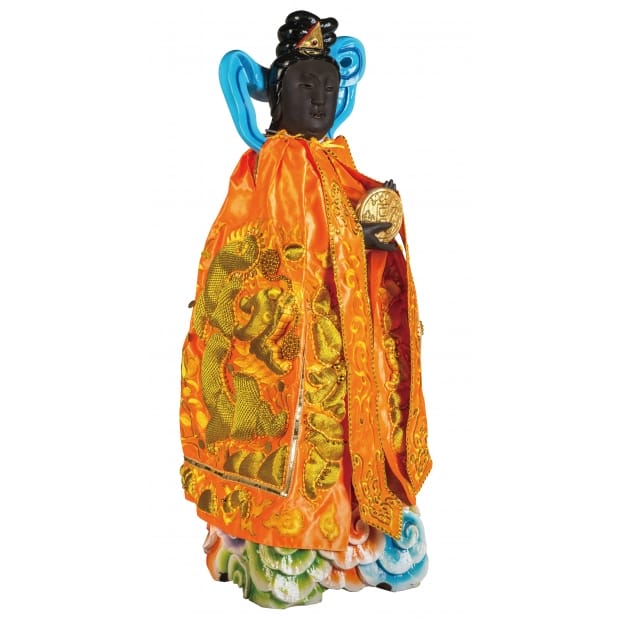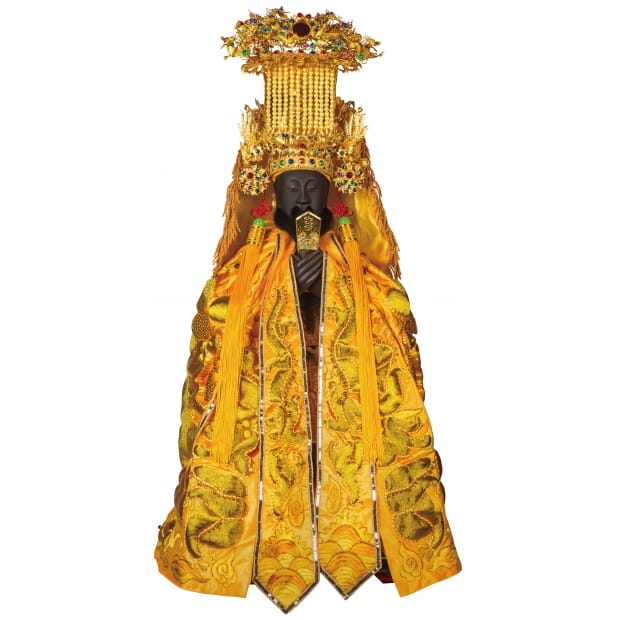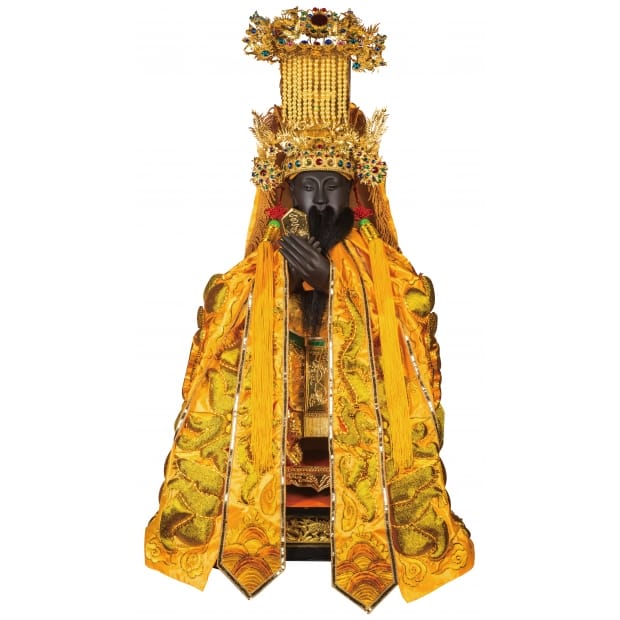All Religion
-
Read MoreAncestral Homage and Incense Dividing at the Cheng An Temple of Maming Mountain
Ancestral Homage and Incense Dividing at the Cheng An Temple of Maming Mountain
2022/3/25 (the 23rd of the 2nd lunar month) -
Read MoreBirth of the Heavenly Duke
Birth of the Heavenly Duke
2022/2/9 (the 9th of the 1st lunar month) -
Read More
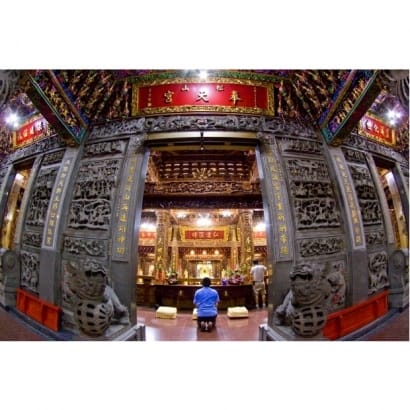 Kneeling in Prayer
Kneeling in PrayerKneeling in Prayer
To perform the Taoist kneeling worship ritual, first lunge forward with the left foot, bending at the knee, bringing the right knee to the ground before lowering the left knee to a kneeling position in preparation to perform three kowtows. When kowtowing, place both hands with palms open on the prayer seat, with the backs of both hands facing upward and pressing the palms into the prayer seat. Touch your forehead to the surface of the prayer seat; alternatively, form the Taichi clasp with both hands and lay the hands on the prayer seat and touch your forehead to the cushion or on your clasped hands. Frequently performing the kneeling and kowtowing ritual not only shows devotion but also dispels the obstacles of sin, and increases blessings and wisdom. -
Read MoreOffering of Objects to the Gods
Offering of Objects to the Gods
Offerings to the gods in Taoism follow the basic tenant of “tranquil clarity, inaction, according to nature, nonresistance”. These include the Four Joys, Five Fruits; and four, six, seven or ten offerings. The killing of pigs or cattle is not advocated. In Taoism, gifts for the gods include the six offerings of “incense, flowers, light, tea, fruit, and vegetables.” The basic concept and spirit are as follows: The incense, does nothing; the tea or water, clean; the flowers, natural; the fruit, whole and round; the lights, candle, or flames burn according to nature; the vegetables, nurture. -
Read MorePraying with Incense Sticks
Praying with Incense Sticks
Worshipping with incense is extremely important in expressing our devotion as well as conveying our pleas and prayers to the place of the gods. When worshipping using incense, stand with the feet together and the posture erect. Hold the incense in your right hand and wrap your left hand around your right. Bring the incense with both hands toward the center of your chest with the lit tip in-line with your upper lip rather than at eyebrow or forehead height. Burning incense is for the purpose of reporting to, requesting, pleading, asking for advice, showing gratitude, and praying for blessings. Reverent and sincere prayers can then reach the heavens through the rising smoke that floats above the three realms, reaching the Heavenly Hall and revealing its solemnity. -
Read MoreAuspicious Lidou Ceremony for the Jade Emperor Lord in Prayer for Peace and Longevity
Auspicious Lidou Ceremony for the Jade Emperor Lord in Prayer for Peace and Longevity
2022/2/8 ~ 2022/2/12 (the 8th to the 12th of the 1st lunar month) -
Read MoreJoint Offering of the First Incense of the New Year
Joint Offering of the First Incense of the New Year
2022/1/31~2/1 (the 29th of the 12th lunar month from midnight to the 1st of the 1st lunar month) -
Read More
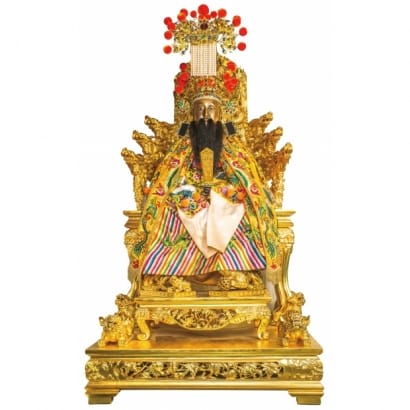 Jade Emperor Deity
Jade Emperor DeityJade Emperor Deity
♦Sacred birth celebrated on the ninth day of the first lunar month♦
The Jade Emperor is the first deity incarnated from the Sanqing (Three Pures) in the Ultimate Realm (Taijijie). The most complete description of the origins of Jade Emperor is found in The Collected Scripture on The Deeds of The Jade Emperor from the Song Dynasty. The Jade Emperor was the son of the King Pure Felicity and Majestic Heavenly Lights and Ornaments and the Queen of the Jeweled Moonlight. At birth, his whole body radiated with light, his perfect countenance delighted all who beheld him. He was intelligent and benevolent from a young age, and gave away all wealth in the nation to those who were suffering and isolated. He dedicated his throne to the people and practiced medicine to save the masses, and practiced in this way for 3200 kalpas before becoming the Jade Emperor. -
Read More
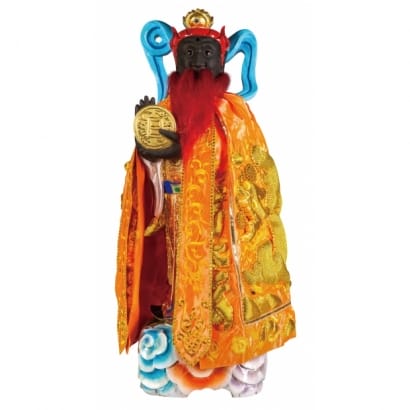 Lord of the Sun (Taiyang Xing Jun)
Lord of the Sun (Taiyang Xing Jun)Lord of the Sun (Taiyang Xing Jun)
♦Sacred birth celebrated on the 19th day of the 3rd lunar month♦
The Daoist God of the Sun holds dominion over the sun. His full Daoist honorific title is “Sun Palace Bright Light Lord of the Sun”, and is often referred to as “The God of Clarity”, “Lord of the Sun,” “Sun God.” The Lord of the Sun is a masculine god, He oversees the movement of the sun, and controls the intensity of flames. The sun rises in the east and sets in the west, light shines upon the earth, blessing the masses; hence generations of mortals have worshipped him. -
Read More
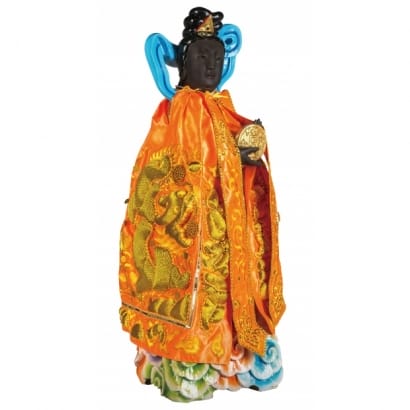 Goddess of the Moon ( Taiyin Xingjun)
Goddess of the Moon ( Taiyin Xingjun)Goddess of the Moon ( Taiyin Xingjun)
♦Sacred birth celebrated on the 15th day of the 8th lunar month♦
Taiyin Xingjun, also referred to as “Moon Mother” or “Lady Taiying” in Taiwan, was known as “God of the Moon” or “God of Night Illumination” in ancient times. Just as the God of the Sun was worshipped and revered, she was held in high regard by both officials and members of the public. In addition to official records, the “Sutra of Taiyin Xinjun” has circulated among the people. -
Read More
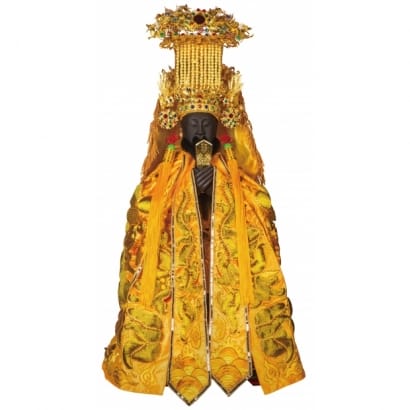 Heavenly Lord Tian Guan (Shangyuan Tianguan)
Heavenly Lord Tian Guan (Shangyuan Tianguan)Heavenly Lord Tian Guan (Shangyuan Tianguan)
♦Sacred birth celebrated on the 15th day of the first lunar month♦
The highest official in the legendary City of Xuandu, he resides in the Purple Star Palace with dominion over the good and evil of all sentient beings, and dictates the ascension of all immortals. His full title is “Heavenly Official of Higher Origin and First-Rank Who Bestows Blessings, Emperor of the Dazzling Spirit of the Sun, Lord of the Purple Star.” -
Read More
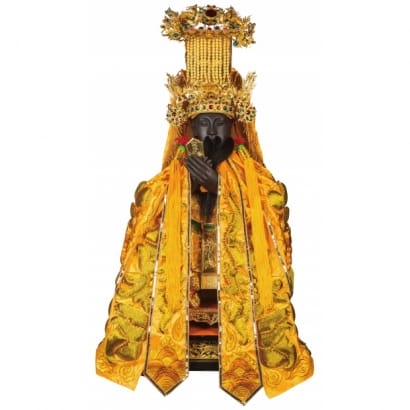 The Earthly Official (Zhongyuan Diguan)
The Earthly Official (Zhongyuan Diguan)The Earthly Official (Zhongyuan Diguan)
♦Sacred birth celebrated on the 15th day of the 7th lunar month♦
As a second highest official in Qingling Dongyang, he presides over the Three Realms, Ten Directions, and Nine Lands, administers the Eight Extremes, Four Dimensions, and Five Mountain Peaks. He examines the opportunities and misfortunes of all sentient beings and audits the book of good and evil in men and women. He is addressed as: “Earthly Official of Middle Origin and Second-Rank Who Absolve Sins (zhōngyuán èrpǐn shèzuì dìguān), “The Great Emperor of Pristine Emptiness” (Dongling qīnɡxū dàdì), and “Lord of Pure Souls” (qingling dijun).

